Keep calm amid global turmoil, says Obama
Jul 17, 2014
President Barack Obama has a simple message for critics who charge that cascading global crises have left his foreign policy flatfooted and US power enfeebled.

WASHINGTON - President Barack Obama has a simple message for critics who charge that cascading global crises have left his foreign policy flatfooted and US power enfeebled.
Keep calm -- I can handle this.
Obama, who won re-election posing as a war-ending, Osama bin Laden-dispatching statesman, is facing increasingly caustic reviews of his leadership as the Middle East unravels in fire and blood and rising powers challenge US resolve across the globe.
"I'll point out the obvious. We live in a complex world and at a challenging time," Obama said, after appearing in the White House Briefing Room on Wednesday to discuss Iran, Ukraine, Afghanistan and the Middle East.
"None of these challenges lend themselves to quick or easy solutions, but all of them require American leadership," Obama said.
"As Commander-in-Chief, I'm confident that if we stay patient and determined, that we will, in fact, meet these challenges."
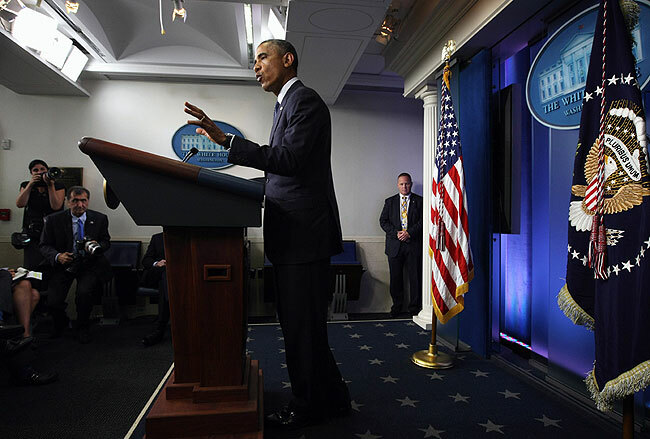
President Obama has been pummelled by critics who say he abandoned Baghdad. (AFP)
US presidents often look abroad in their second terms when their domestic power erodes and the lure of legacy polishing achievements tempts.
But when Obama casts his eye across the globe, he sees only trouble -- and few opportunities to festoon a shrinking foreign policy resume.
His simple message -- that he ended the Iraq and Afghan wars and put Al-Qaeda on the run, has been trumped by instability and geopolitical blazes which threaten to tear nations apart and swamp long-established national borders.
The US leader has been pummelled by critics who say he abandoned Baghdad then stood by and watched as murderous Islamic State rebels chewed off chunks of Iraq and Syria to establish a caliphate, which some fear could turn into a terror haven to threaten the United States.
As it agonizes over how to shape Syria's civil war and worries about Libya's splintering, the administration also faces a long term challenge from an increasingly assertive China and the march of radical Al-Qaeda inspired radicals across Africa and the Middle East.
But on Wednesday, the president offered a breezy summary of the current crises stacked up in his in-tray, apparently bent on quelling Washington chatter about his leadership.
He unveiled the most punishing US sanctions yet against Russia over Ukraine, hinted he would give more time to a deal making with Iran over its nuclear program after a Sunday deadline and promised to redouble efforts to end the battle in Gaza between Israel and Hamas.

A young boys cries as he is about to leave for Russia in Donetsk. (AFP)
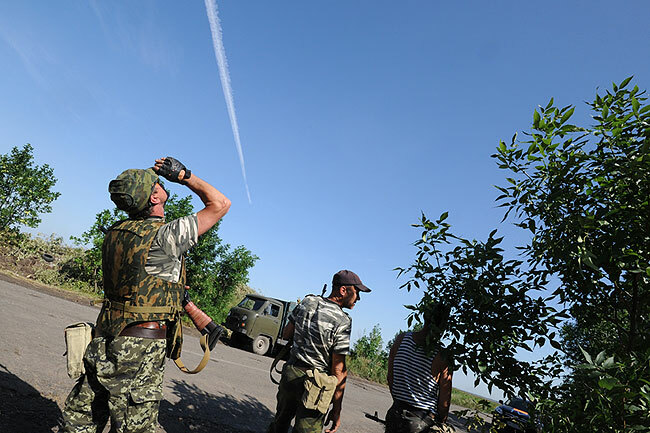
Pro-Russia militants look overhead at a Ukrainian army plane as they exchange fire near the town of Marynivka, 100 km east of Donetsk. (AFP)
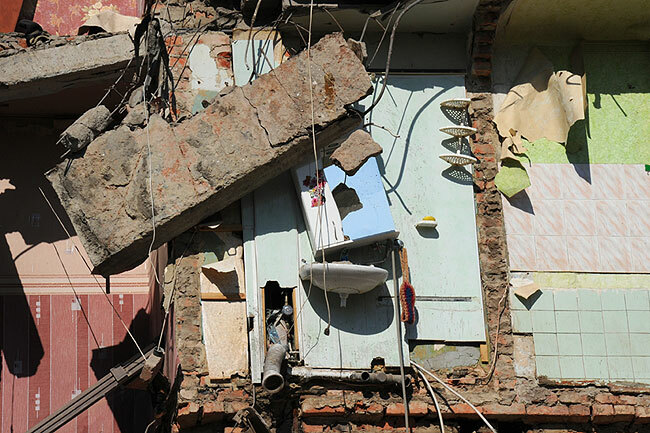
This building was destroyed by the Ukrainian Air Force in Snezhnoye, 80 km east of Donetsk. (AFP)
The plan seemed to be to project resolve and resourcefulness -- and Obama did not take questions that might have drawn answers that diluted the simplicity of his message.
It was not the first time in recent months that Obama felt the need to defend his foreign policy.
In Manila in April, he argued the key to US leadership was avoiding big mistakes, like the Iraq war. That message was distilled into a formal foreign policy address in May when he warned "tough talk often draws healdines, but war rarely conforms to slogans."
This time the White House seems to have concluded that it was time to counteract an emerging trope that Obama was being outpaced by global events.
Respected foreign policy columnist David Ignatius warned Wednesday that Obama had slumped into foreign policy inertia, characterised by a lack of urgency and missing follow through on vital US initiatives.
"There is no prize for good intentions here, performance is what matters," Ignatius wrote in the Washington Post.
"The White House must break through whatever resistance or inertia it encounters. The rest is excuses."
While foreign policy is a intricate business, politics is the stuff of simple narratives that stick.
Obama can ill afford an impression -- long fanned by Republican critics -- that he is an indecisive leader more prone to contemplation than action, hardening into accepted media conventional wisdom.
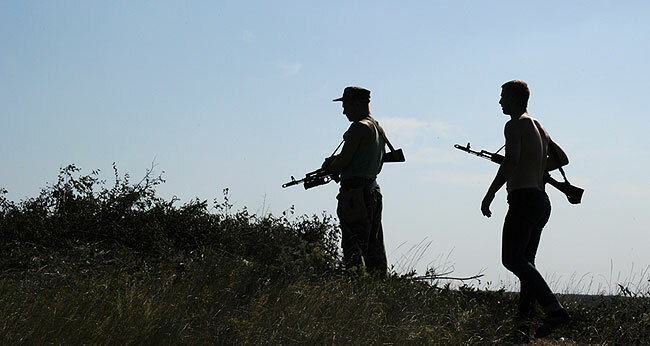
Pro-Russia militants patrol after exchanging fire with the Ukrainian army near the town of Marynivka. (AFP)
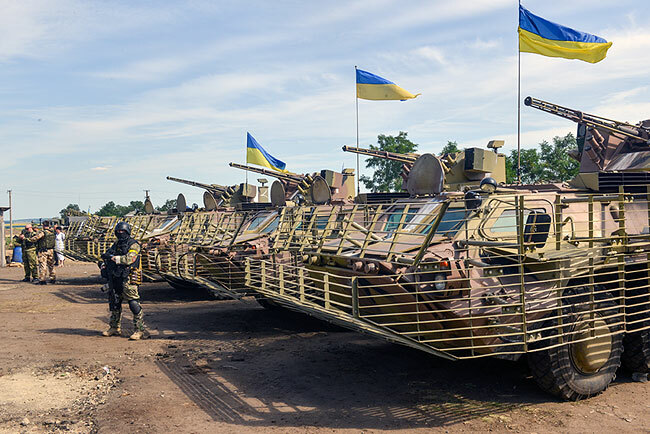
Servicemen guard a parking of APC's (armoured personnel carriers) in headquarters of Ukrainian forces near Izyum, in the Kharkiv region. (AFP)
Just this week, the Wall Street Journal, in a widely noticed front page article, wrote that an "arc of instability" challenging Obama's foreign policy and "reflecting a world in which US global power seems increasingly tenuous."
Obama has in the past vehemently rejected claims he has presided over an era of American decline -- and says the one commonality between each global crisis is that it can't be solved without active US engagement.
Obama's Republican critics were quick to react to his announcement of new sanctions on Russia, which ratcheted up the worst East-West crisis since the end of the Cold war.
Mixing faint praise with criticism, Bob Corker, the top Republican on the Senate Foreign Relations Committee said the new measures were useful but overdue.
"While the delay in imposing real costs on Russia has been damaging to US credibility, (the) announcement by the administration is definitely a step in the right direction," said Corker.
Marco Rubio, a potential Republican presidential candidate took a sharper tack, reflecting the fact that Obama's foreign policy struggles are already grist for the 2016 campaign trail.
"The sanctions announced ... by President Obama are inadequate," said Rubio.
"Limited actions ... make US threats look hollow."
AFP
